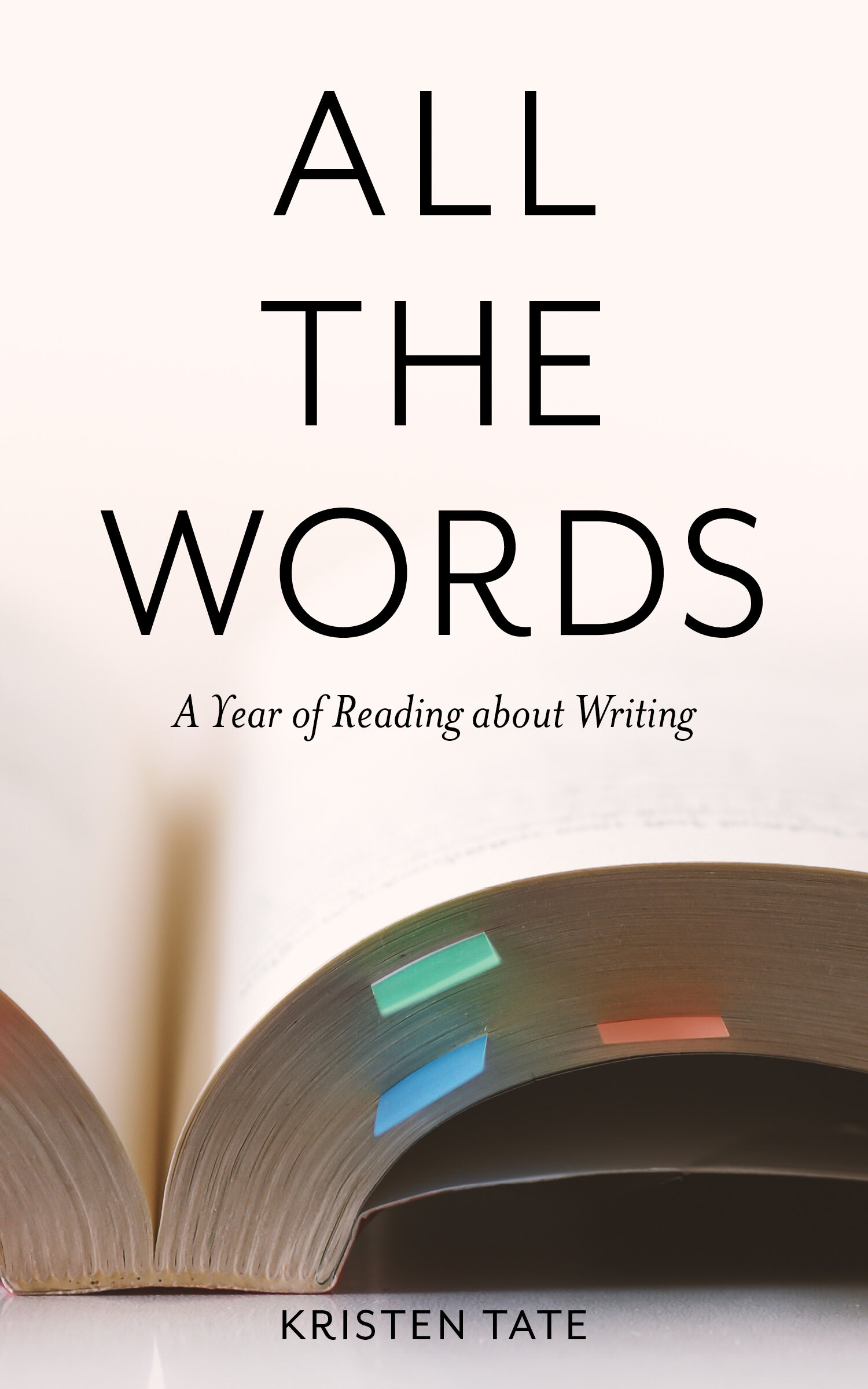Writing Down the Bones, by Natalie Goldberg
This is part of a series of weekly reviews of writing craft books written in 2019, later revised and collected in Kristen’s book All the Words: A Year of Reading About Writing. Read the first chapter or buy the book in our Shop.
It is week ten of 2019. Of all of the fifty-two weeks of the year, week ten might be my least favorite, followed closely by week nine and week eleven. My internal weather is always stormy in March. Here in San Francisco, it’s been rainy and gray for weeks, and when the sun does make a brief appearance, it feels too sharp and bright.
Maybe it is the same for you? I hope not. I hope that you are sailing through calm seas under gentle blue skies and that the words are piling up in your document or notebook. But if not, I’ve got two tonics to offer you today, for this or whatever season you need them.
First, go out and get yourself a bag of lemons and a big knob of fresh ginger. Find a few quiet hours, a vegetable peeler, a grater, and a sharp knife. Cut away the peel and pith of each lemon, then free each lemon segment from its membrane. Put the segments in a bowl or a food processor. Peel a big chunk of the ginger and grate it on top of the lemons. Whir the mixture in the food processor or crush and stir it together in the bowl, and then pour it into an ice cube tray and freeze. What you get are sunny yellow cubes so intense in flavor they will shock you right out of the dull gray fog blanketing your body and mind.
Second, get yourself a copy of Natalie Goldberg’s Writing Down the Bones, dip into it at random, and then do what she tells you: write for ten minutes without stopping, or bring together a story circle, or scramble the words of a few of your sentences and put them together again in an unexpected way. The book is full of suggestions – flip through it and you are sure to find one that speaks to you.
The central recommendation of the book is to commit to regular, timed writing practice that has no immediate goal or purpose. Set yourself an interval and then go: keep writing or typing, without stopping to reread or cross out or worry about grammar. “Lose control,” Goldberg says. “Don’t think. Don’t get logical. Go for the jugular.”
The point is to write confidently, without fear, to show yourself you can do it. “Writing is the act of burning through the fog in your mind,” Goldberg says. “Don’t carry the fog out on paper. Even if you are not sure of something, express it as though you know yourself. With this practice you eventually will.” I believe in the truth of Goldberg’s words. Remember what Elizabeth Gilbert had to say about giving yourself permission to write? Goldberg takes it one step further and gives you permission to believe that you can create good work, even though “every time we begin, we wonder how we ever did it before. Each time is a new journey with no maps.”
Goldberg is primarily a poet and memoirist, so she is able to mine this writing practice material directly when she turns to her more intentional creative work. If you are a novelist, you will uncover insights you can bring into your work, but you can also adapt her suggestions to explore your fictional world. Try doing some writing that won’t end up in your novel but will help you know your characters and setting in a deeper way. Describe what March is like in the world of your novel. Tell a story from when your protagonist was eight years old or twelve or sixteen. Rewrite one of your scenes in second person (“you”) or in first person plural (“we”). Imagine a day in the life of a minor character ten years after the events of your novel. The practice is the point. As Goldberg puts it, writing practice is “our wild forest where we gather energy before going to prune our garden, write our fine books and novels.”
Writing Down the Bones is also a good companion whenever you are feeling March-ish because Goldberg believes down to her core that writing of any kind is healing work. Writing practice is, she says, “a way to help you penetrate your life and become sane.” Writing is a way to confront our anxieties: “it’s a measured way to dip yourself into that huge vast emptiness, that loss of control, and then pull yourself out so you can feel safe again.” And writing is a way to celebrate the fact that “every minute we change”: “At any point, we can step out of our frozen selves and our ideas and begin fresh. That is how writing is. Instead of freezing us, it frees us.”
Goldberg tells the story of a group of students who had traveled a great distance to attend one of her courses for the fourth time, mostly to be reminded again that all they needed to do was “pick up a pen and write.” So here is your reminder to do just that, in Goldberg’s words:
“In the middle of the world, make one positive step. In the center of chaos, make one definitive act. Just write. Say yes, stay alive, be awake. Just write. Just write. Just write.”
Here’s to burning through the fog, y’all,
Kristen
Check out our Resources page for more in-depth articles on writing, revising, polishing, and publishing your novel. Sign up for our weekly newsletter for fresh content, and you’ll also get our free PDF with recommended reading for writers!



